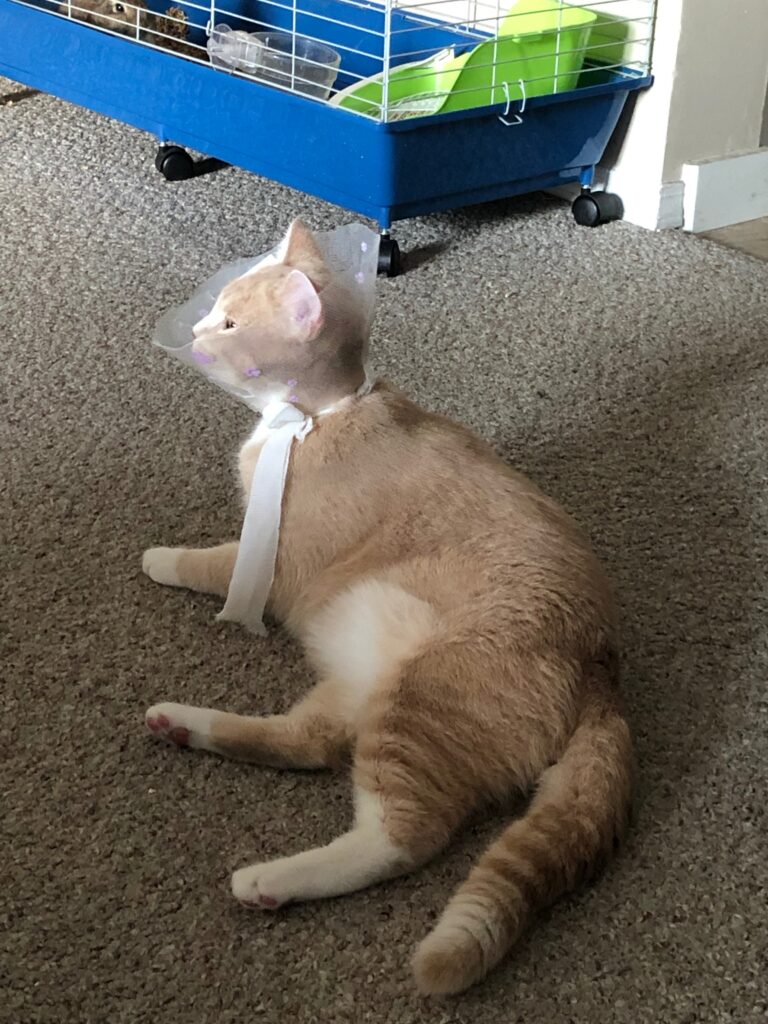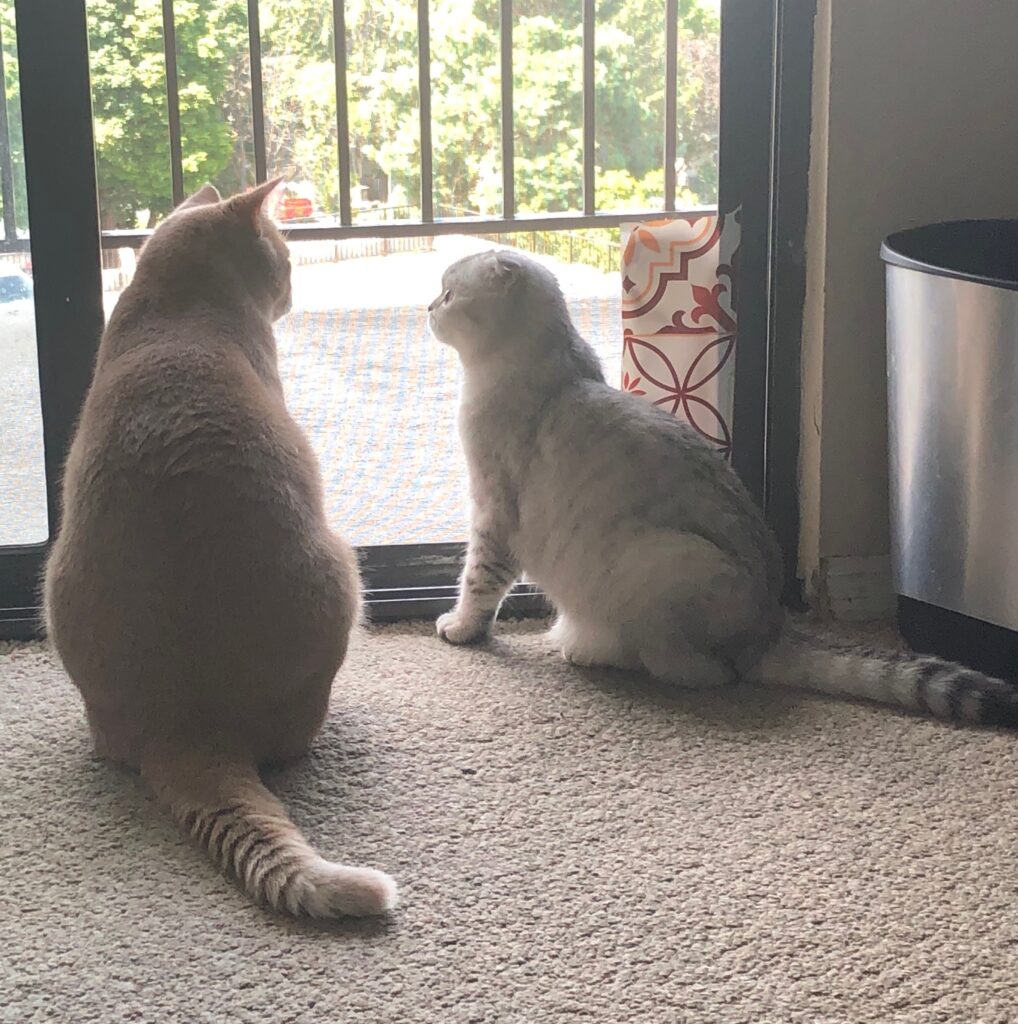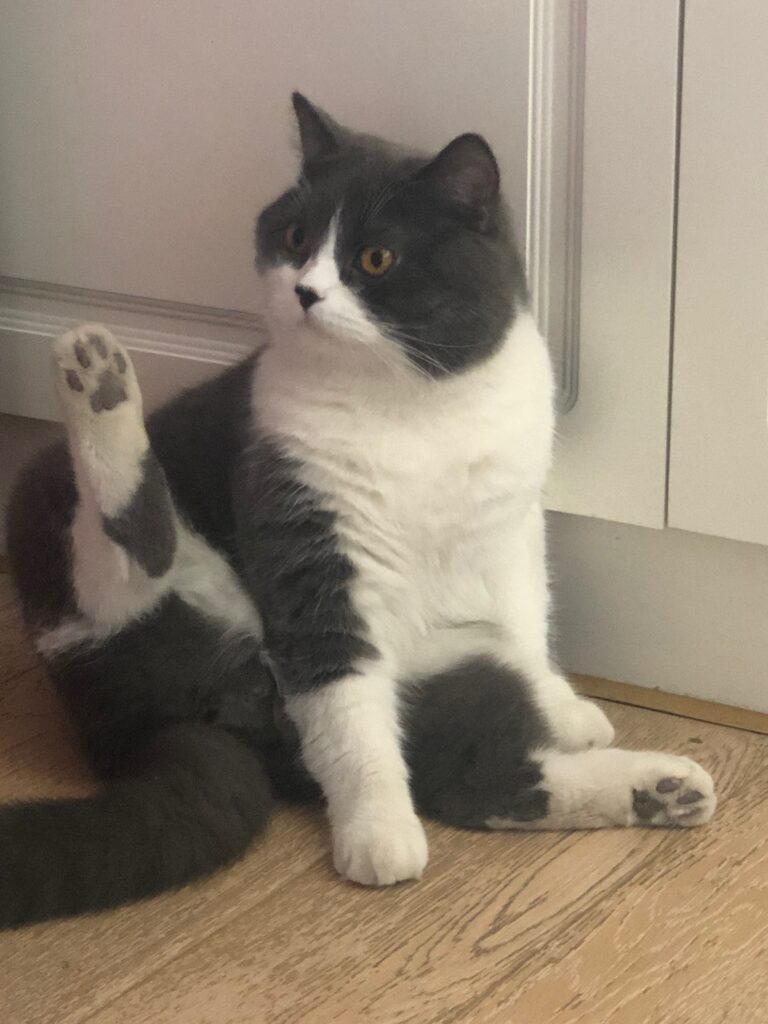
This photo was taken in 2019, the first cat I had since arriving in Canada and the first time I took him to the hospital. This trip to the hospital was not because he was sick, but because of a check-up and vaccinations. If you are planning to have your pet vaccinated, please read this story carefully and I will share the full process and precautions in the rest of this story.
For most first-time pet owners, getting their pets vaccinated is one of the most important things to do. Many people are confused about why and how to take their pets to these events. Firstly, let’s start by understanding what pet vaccines are. In terms of how pet vaccines work, it is the process of injecting a harmless virus into a healthy animal to create resistance through its own immune system. In layman’s terms, pets are vaccinated in the same way that we humans are vaccinated today. Regular vaccinations keep pets safe from infectious diseases such as distemper, microviruses, feline distemper, feline rhinitis and some zoonotic diseases. Common pet diseases, once contracted, are time-consuming and expensive to treat! The cure rate is usually no more than 50% and requires a longer consultation time. In my experience, when I first got my dog, I did not know that pets needed to be vaccinated at a young age, so my dog was infected with distemper by another dog when she was less than a year old. Although my family took her to hospital and spent about $2,000 on treatment, it didn’t save her life. So for new pet owners, skipping the vaccination process is very much not worth it and can put your pet at great risk as they grow up. In any case, always take your pet for vaccinations when they are small.

Secondly, in order to get your pet vaccinated, you will need to check online for hospitals where you can get your pet vaccinated and book an appointment in advance. Before making an appointment to have your pet vaccinated, you will need to have a full body check-up at the hospital. This is to ensure that they are currently healthy and do not carry any viruses. This is because vaccination when they are unhealthy can lead to vaccine failure or other outbreaks of disease, which can be dangerous for young pets. Once you have completed all the preparations it is time to start the vaccination process, which is actually very simple and quick. The doctor will give your pet different vaccinations depending on their age, but of course it’s better to take them in at a younger age. For example, puppies can have their first vaccination at around 50 days and kittens even earlier, at around six weeks of age.The best time to get your pet vaccinated is before they are a year old, both cats and dogs need three vaccinations before they are a year old. After the first vaccination the doctor will give the owner details of the vaccination schedule.
Finally, owners have done most of the work, but there are still a few things that need special attention. After vaccination it is recommended to observe your pet in the vet for 20-30 minutes to prevent acute allergic reactions and to avoid contact with other animals during the observation period. At the end of the observation period, the doctor should confirm that there are no abnormalities before leaving.And don’t give your pet a bath for a week after the vaccination.

Outline:
1.The purpose of my story is to introduce people to what pet vaccines are, what the effects of these vaccines are, how to take your pet to get vaccinated, and some important precautions to take before and after vaccinations have been given.
2. My audience was, firstly, first time pet owners and, secondly, owners who wanted to take their pets for vaccination. This story will give you a good understanding of how to get your pet vaccinated and the important things to do.
3. My core information comes from my own experience, as well as conversations I was once told by my vet , and the internet. I will indicate in the text that this information is from sources other than myself, and for information on the internet I will include references.
For information on the Internet, I will write references in APA format.